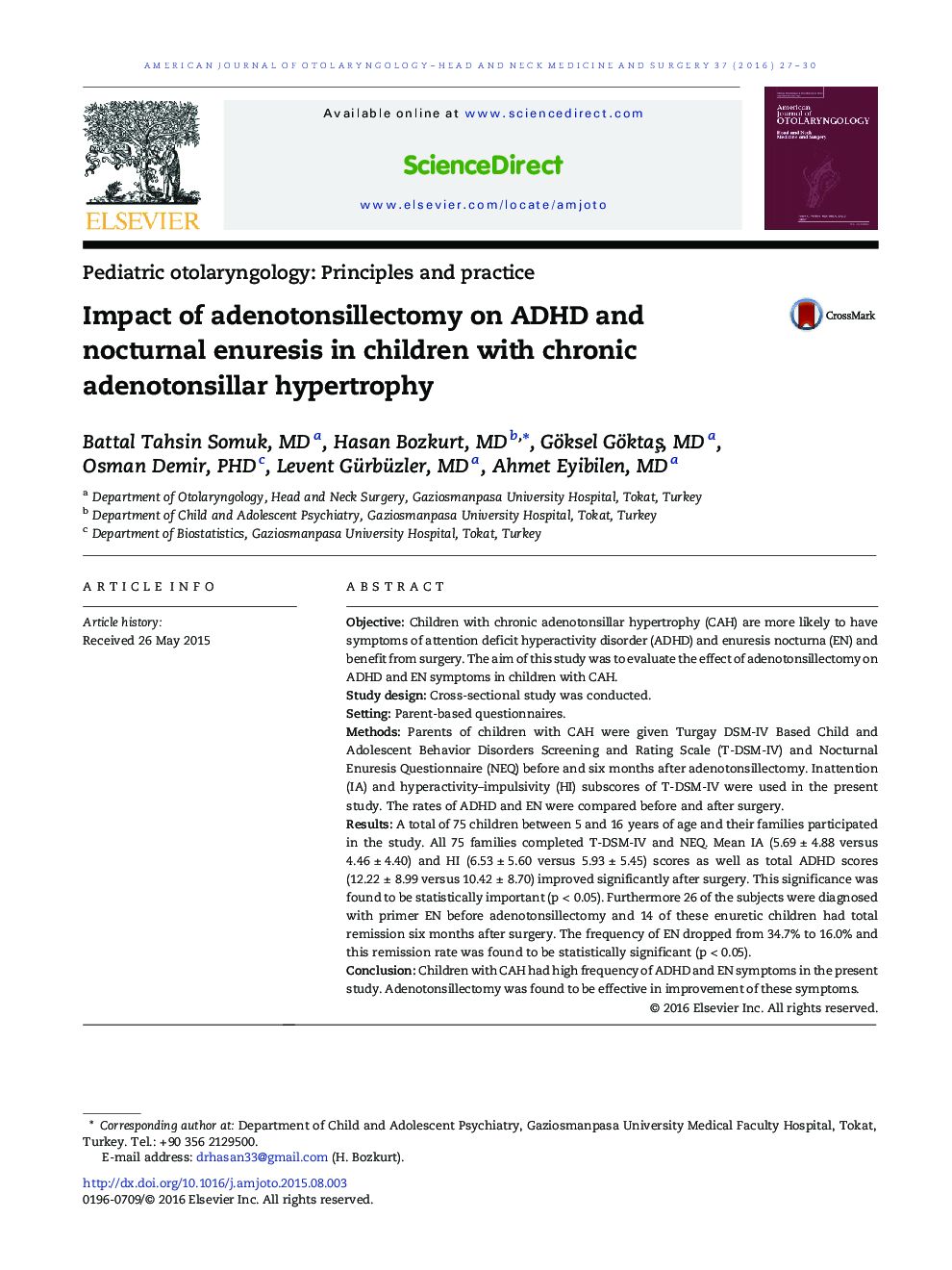| Article ID | Journal | Published Year | Pages | File Type |
|---|---|---|---|---|
| 4103106 | American Journal of Otolaryngology | 2016 | 4 Pages |
ObjectiveChildren with chronic adenotonsillar hypertrophy (CAH) are more likely to have symptoms of attention deficit hyperactivity disorder (ADHD) and enuresis nocturna (EN) and benefit from surgery. The aim of this study was to evaluate the effect of adenotonsillectomy on ADHD and EN symptoms in children with CAH.Study designCross-sectional study was conducted.SettingParent-based questionnaires.MethodsParents of children with CAH were given Turgay DSM-IV Based Child and Adolescent Behavior Disorders Screening and Rating Scale (T-DSM-IV) and Nocturnal Enuresis Questionnaire (NEQ) before and six months after adenotonsillectomy. Inattention (IA) and hyperactivity–impulsivity (HI) subscores of T-DSM-IV were used in the present study. The rates of ADHD and EN were compared before and after surgery.ResultsA total of 75 children between 5 and 16 years of age and their families participated in the study. All 75 families completed T-DSM-IV and NEQ. Mean IA (5.69 ± 4.88 versus 4.46 ± 4.40) and HI (6.53 ± 5.60 versus 5.93 ± 5.45) scores as well as total ADHD scores (12.22 ± 8.99 versus 10.42 ± 8.70) improved significantly after surgery. This significance was found to be statistically important (p < 0.05). Furthermore 26 of the subjects were diagnosed with primer EN before adenotonsillectomy and 14 of these enuretic children had total remission six months after surgery. The frequency of EN dropped from 34.7% to 16.0% and this remission rate was found to be statistically significant (p < 0.05).ConclusionChildren with CAH had high frequency of ADHD and EN symptoms in the present study. Adenotonsillectomy was found to be effective in improvement of these symptoms.
